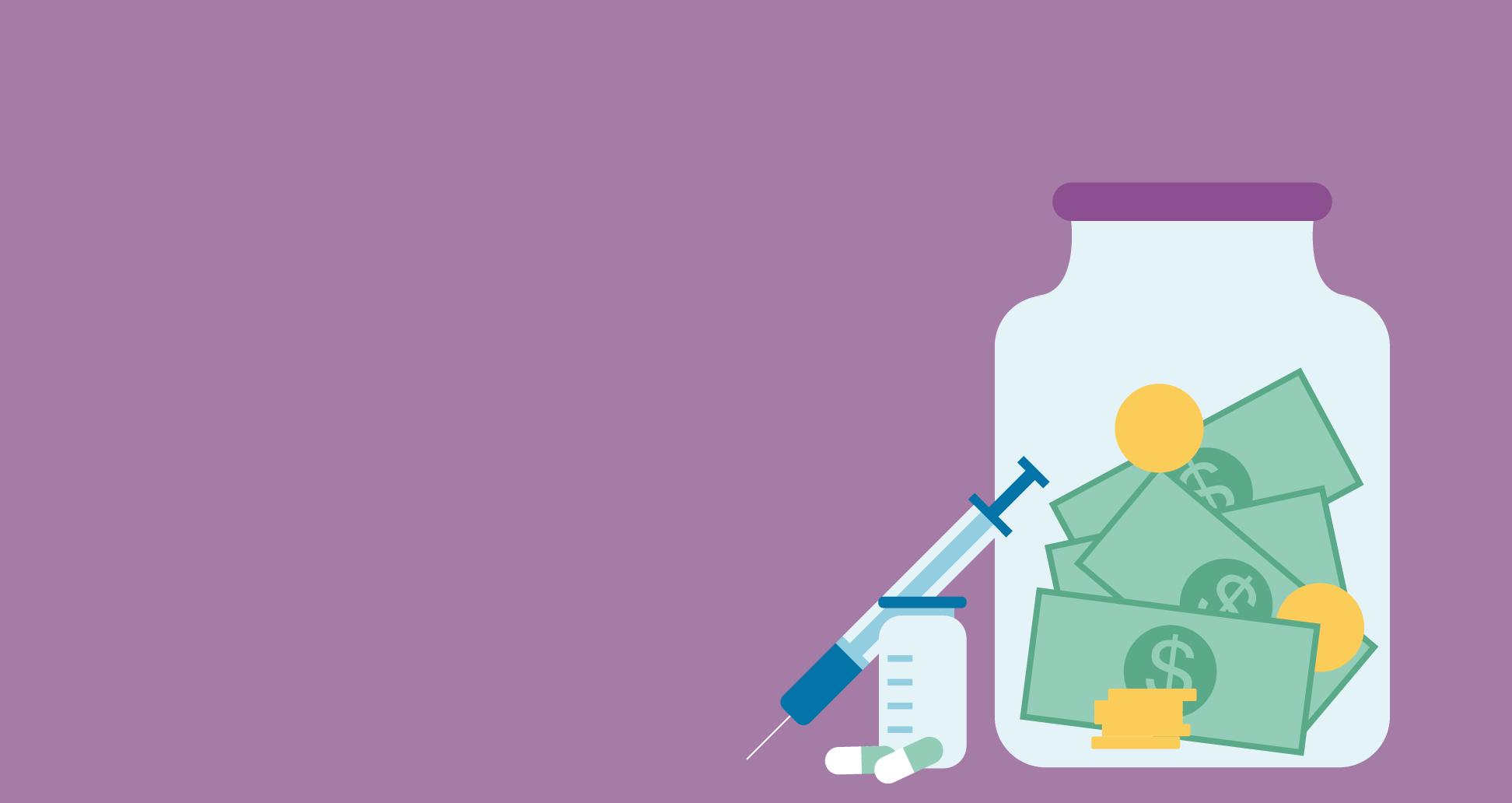IVF Medication Cost and How to Save

Medically reviewed by Linda Streety, RN, BSN
Medication costs can end up being a big chunk of the overall treatment costs of in vitro fertilization (IVF) or egg freezing. Depending on your medication protocol, the total cost of medications alone will likely be between $2000-7000 for a single IVF cycle. Fortunately, discounts, insurance, grants, and/or loans can help cover some or all of these costs. Below, we’ll talk about each of these options to help you prepare financially for your IVF journey.
Check with your health insurance provider
Depending on your health insurance and the state in which you live, some or all of the cost of IVF may be included in your insurance coverage, including your medications. Before starting IVF treatment, you should consult with your health insurance provider to find out what is covered under your plan.
Apply for grants
There are a wide variety of fertility treatment grants available that offer financial assistance with IVF costs. Many programs have requirements to apply, such as where you live, an infertility diagnosis, income, age, identity, marital status, or religious affiliation, etc. You may need to provide financial information, medical records, personal information, and an application fee. There are many good lists of grants out there; we particularly like the one that FertilityIQ has compiled.
Apply for discounts
Some pharmaceutical companies offer discount programs for the fertility medications they manufacture for self-pay patients and/or patients who are active duty military or veterans. You can apply for these discounts to see if you qualify. Some programs you may consider include:
Apply for a loan
You can apply for a loan to help with your IVF cycle costs. Your fertility clinic may actually partner with a lender with experience helping patients with fertility expenses. You may also research credit unions, personal loans, and other financing options to help with the cost.
Ask if your fertility clinic is running any clinical trials
Your clinic may be participating in a clinical trial to test a fertility treatment approach. If you participate in the trial, you may get free or discounted care. You may consider talking to your fertility care team to see if they are running a trial, if you qualify, and whether it’s the right approach for you.
Order your IVF medications ahead of time
If you know the approximate start date of your IVF or egg freezing cycle and have your medication protocol, you can order your medications ahead of time. It’s important not to wait until your IVF cycle begins to order your medications because it can take some time for your medications to arrive if you have ordered them online. Planning ahead also enables you to compare prices among different pharmacies to help lower the overall cost of your IVF medications. This is important because not all pharmacies charge the same amount for the same medication! To help you find the best prices:
- Use GoodRx for coupons and price comparisons - If you are paying for your medications out of pocket, GoodRx enables you to compare prices for medications at pharmacies in your area, and provides coupons for discounts. You may be able to get discounts on some of your IVF medications this way.
- Order from an online pharmacy that offers cost savings - Since fertility medications are specialty medications, they may not always be available at your local pharmacy. Online pharmacies such as Alto Pharmacy and Encompass Fertility offer ways to get all your medications at competitive prices by connecting you with discounts and coupons that can help lower the overall cost of your medications.
Check in with your fertility care team regularly about changes to your medication protocol
Depending on how your body responds to your IVF protocol medications, your RE may change your medication dosages or extend ovarian stimulation by a day or more. This could mean needing more IVF medications than you originally ordered. You may consider talking to your fertility care team about your medications throughout your cycle to see if you may need more medication than they anticipated. This allows you to research the best prices for those medications and order them ahead of time, instead of scrambling to find any pharmacy that can provide them regardless of price.
Track your IVF expenses
You may be able to recoup some of the cost of IVF by deducting your fertility care expenses from your taxes, including your IVF medication costs. For more information on how to get a better return on your taxes by tracking your fertility care expenses , click here.
Choose a fertility clinic that uses Alife
Alife’s Stim Assist software assists your RE in determining a medication protocol optimized for your particular fertility characteristics. This AI-powered tool helps your RE optimize the number of eggs they retrieve from your ovarian stimulation cycle while, on average, reducing the overall amount of medication you need (saving you money!)
Recent Articles
Share this
Recent Articles

Learn everything you need to know about IVF
Join the newsletter for IVF education, updates on new research, and early access to Alife products.



